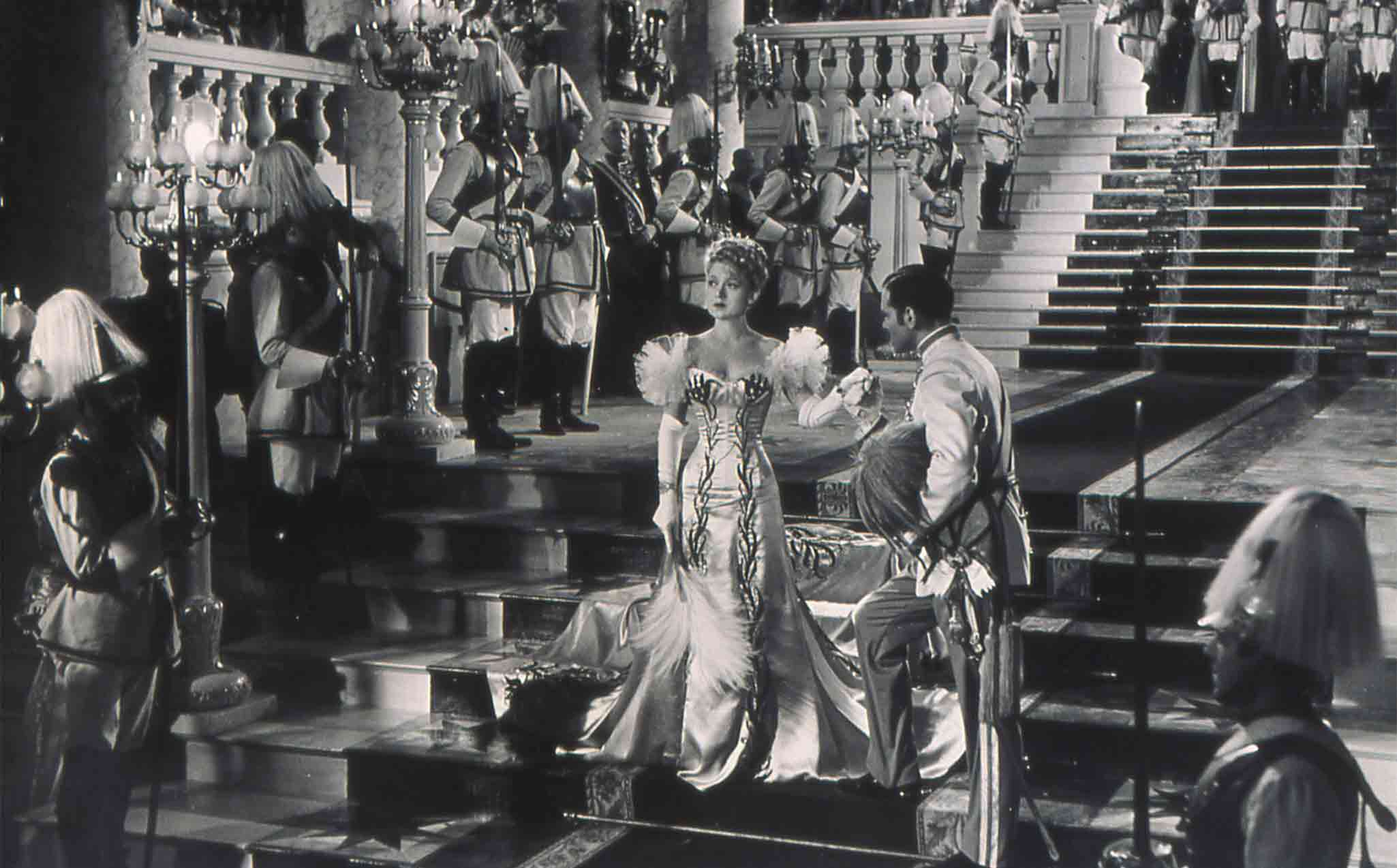FROM MAYERLING TO SARAJEVO
12:402:505:107:209:30
Final Day! Thursday, April 2
Directed by MAX OPHÜLS
NEW 35MM PRINT
(1940) In the wake of the murder-suicide of Prince Rudolph at Mayerling, John Lodge’s stiff, but broad-minded Archduke Franz Ferdinand becomes the heir presumptive to the Austro-Hungarian empire, to the distinct unhappiness of its emperor, Franz Josef. But then Franz Ferdinand wants to marry Edwige Feuillère, a mere countess - and a Czech! In Ophüls’ romantically aristocratic world you know where you stand when the morgantically (their children can’t inherit) married couple are about the arrive at their first imperial ball together; a functionary murmurs Feuillère must use the Minor Stairs. Made in France and premiering just before it fell to the Nazis, this was Ophüls’ last picture before Hollywood and a surprisingly faithful, and lavishly produced, account of a Romeo and Juliet passion hindered not by family enmity, but by levels of nobility, a way of life to be wiped out by the events then only 25 years in the past - the same distance in time we have to the fall of the Berlin Wall. (Historical footnote: This would be the last film of American actor Lodge - of the Boston Lodges; he’d been co-star to Katharine Hepburn, Marlene Dietrich, and Shirley Temple before eventually becoming congressman and governor of Connecticut, as well as U.S. ambassador to Spain, Argentina, and Switzerland). Approx. 97 min. 35mm.
A FILM DESK RELEASE

Reviews
“ONE OF OPHÜLS’ MOST NEGLECTED AND FINEST WORKS! Of particular importance in its explicit extension of the Ophülsian viewpoint to the world of politics: while its consciously defined political position falls within the bounds of progressive liberalism, its vision of love as in itself a revolutionary force is far more radical.”
– Robin Wood
“AN EXEMPLARY POLITICAL FILM, the counterpart to Jean Renoir’s The Rules of the Game (from 1939) as a work of vast historical vision in a quasi-operatic form. The viewing at Film Forum is all the more significant for being no mere revival, but a sort of reincarnation.”
– Richard Brody, The New Yorker
Click here to read the full article
"Distinctively Ophulsian, taking great grace with spaces and character, and allowing Edwige Feuillère to charm our pants right off. For M.O. junkies, it's a necessity.”
– Michael Atkinson, Village Voice
“OPHULS UNDER-APPRECIATED, SPLENDIDLY WRITTEN, FILM AND ACTED FRENCH POLITICAL ROMANCE.”
– The L Magazine
“As in his later masterpieces, Ophüls relishes the absurdity while delighting in the elegance of court life - and of his own camerawork.”
– Pacific Film Archive notes
“Resurrects from a dim and dusty past the pitiful, romantic story of two of the most pathetic minor figures in history, and it does so with admirable restraint, tender affection and essential fidelity. The final sequence - the fateful episode of Sarajevo - is enacted with amazing vividness. Here, at last, on the screen is one of history’s most tragic events - the beginning, not the end, of a terrible drama.”
– Bosley Crowther, The New York Times
“Ophüls’ technique is never less than dazzling. His camera is never still and he has a predilection for choosing settings that demand a maximum of movement (such as staircases)… The patterns of construction in his films reflect Ophüls’ conception of society as a spectacle scarcely concealing… a frenzied pursuit of hollow enjoyment.”
– Roy Arnes, French Film
